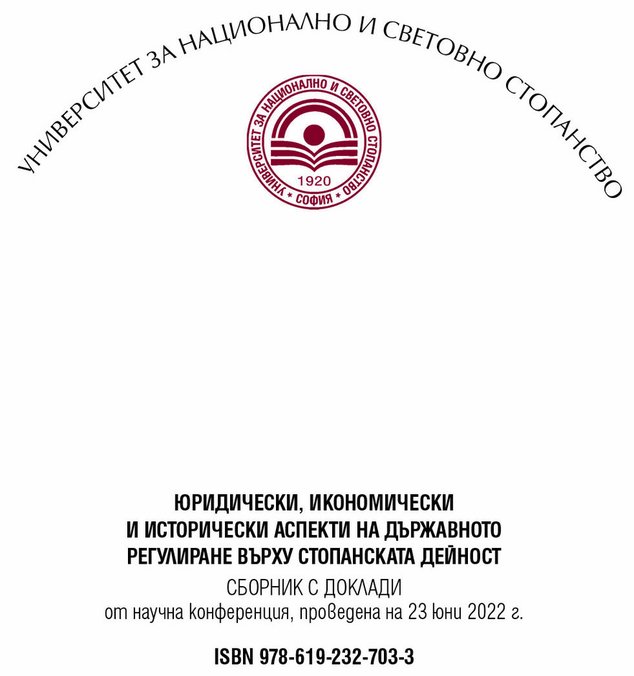Статутът на жената според обичайното право и използваната терминология в народния говор
The status of women according to common law and the terminology used in the vernacular
Author(s): Neli Radeva
Subject(s): History, Law, Constitution, Jurisprudence, Civil Law
Published by: Университет за национално и световно стопанство (УНСС)
Keywords: woman; maiden; bride; newly married woman; fiancée; wife; property rights
Summary/Abstract: During the Bulgarian Revival and immediately after the Liberation of Bulgaria, the status of women was determined by the patriarchal traditions, understandings and customs of the Bulgarians. Bulgarian customary law legitimizes certain powers of the Bulgarian woman and in the vernacular different names are used for the word woman and to regulate her legal status. The woman-daughter, maiden, fiancée, bride, wife and mother has a number of responsibilities – housework and field work, childbirth and raising children, etc., but she has never been a slave, completely subordinate to the authority of her father or that of her husband. Living conditions create opportunities for her not to be impersonal, but on the contrary to take an active part in making important decisions for the family and the community. Her right to property, as well as to dispose of her possessions, are proof of the power she possesses.
- Page Range: 141-150
- Page Count: 10
- Publication Year: 2023
- Language: Bulgarian
- Content File-PDF

